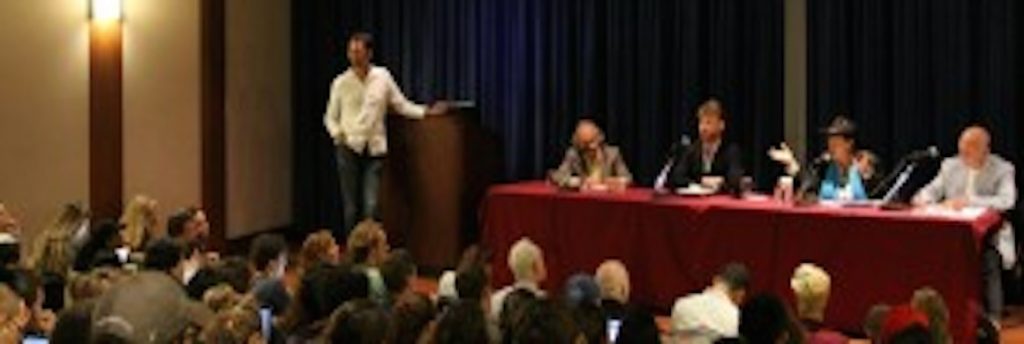Gabelli Hosts Conference on Sustainable Business Practices

Fordham’s Gabelli Graduate School of Business published an article about lessons gleaned from a recent “humanistic management conference” that featured four panelists with a “passion for making the world a better place.” The panelists included sustainable business pioneer Hunter Lovins; former Fortune 500 company CEO Brent Martini; AACSB International President David Levine; and Change Everything author Christian Felber.
Lovins expressed a need to redesign the American economic system so it is more consistent with human nature. “We have survived on this planet and are happy because we have formed bonds with other people. So, why is it that greed, individuality and power are the cornerstones of the way we do business? We have to craft a new narrative in economics, based on the science of who we are,” he said as part of the panel.
Lovins cites the Sustainability Accounting Standards Board (SASB) nonprofit “industry-specific standards for corporate sustainability disclosure” as an ideal example of how big business might exist more harmoniously with our culture.
Martini offered four axioms to keep students on the straight and narrow: 1) Stay true to the values and beliefs that make you unique; 2) Demand that those around you and you yourself work not only harder and more efficiently, but with the purpose of being a force for good; 3) Humanism works for people. And if it works for people, then it is guaranteed to work for business; and 4) [Treating] people better, more fairly, and with the respect they deserve are all vital components of success in business.
Levine discussed a seismic shift taking place both in business and culture, where what once “was good for people was called bad for business…our preferences are becoming more value-based” now. Exhibit A: look no further than your local neighbor freezer for a pint of Ben & Jerry’s. Levin believes we can “create positive economic change in this lifetime” by aligning ourselves with “businesses that are helping people and creating a better world [and] working in solidarity with other like-minded corporations.”
Feiber confronted the dissonance between the current 1 percent economic model—“where competition and profit are the benchmarks of success”—and his theory that “every day, normal people are much more inclined to agree with an economy that is for the common good of the world.”
While this system is “responsible for many of our world’s problems,” Feiber believes there is hope of shifting our value system to create “an economy with a greater value on fair trade and ethical banking practices.”
The panelists were all confident that business is moving toward more sustainable and ethical practices, which Gabelli students will also surely “incorporate…into their business careers and everyday lives.”
